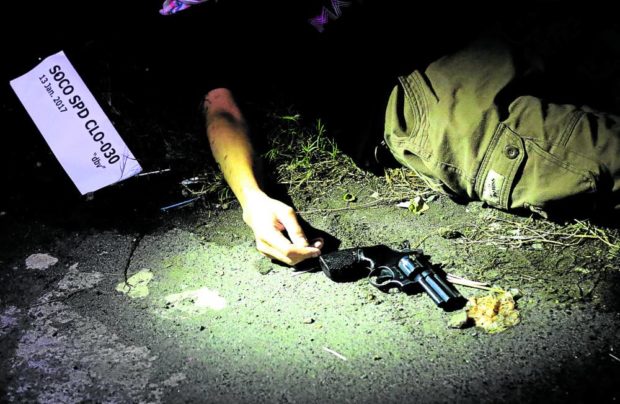Drug war victims’ families welcome review of ICC exit

INQUIRER FILE PHOTO
MANILA, Philippines — Families of the victims of the drug war welcomed on Saturday the remark of President Ferdinand Marcos Jr. that the government is “studying” whether to rejoin the International Criminal Court (ICC).
The families, under the group Rise Up for Life and for Rights (Rise Up), issued a statement through their lawyers saying that any form of cooperation from the government would be “welcome” even after years of inaction.
According to lawyers Neri Colmenares and Maria Kristina Conti, the ICC investigation will benefit from “more information and cooperation,” particularly those with “personal knowledge” of incidents during the drug war of former President Rodrigo Duterte.
The Philippine National Police acknowledged that more than 6,000 drug suspects were killed during the deadly drug war, and the Department of Justice said that about 50 of the 6,000 cases were already under investigation, supposedly disproving claims that the government was unwilling to prosecute the killings.
Amid the possibility of prosecution for crimes against humanity, Duterte in March 2018 withdrew the Philippines’ accession to the Rome Statute, the international treaty that created the ICC, raising issues of jurisdiction and sovereignty.
Article continues after this advertisementOnly 3 deaths prosecuted
On Friday, Marcos maintained that the ICC has no jurisdiction to probe the drug war killings because the country has a working judicial structure that can prosecute any crime committed in the country.
Article continues after this advertisementBut out of the more than 50 cases that were investigated, only three deaths were successfully prosecuted and there has been no additional information on the others, much less the other 6,000 cases.
6,000 killings
The president, however, said the government was studying whether to rejoin the ICC, a softening of Marcos’ earlier hard stance on ICC membership, but he made no mention of cooperating with ICC prosecutors studying the 6,000 killings.
“We must emphasize that the cooperation of the Philippines is obligatory under the Rome Statute,” Colmenares and Conti said in their joint statement.
Colmenares and Conti also urged Marcos to reconsider his earlier position to disengage with the ICC.
The change in Marcos’ position came after moves in both houses of Congress to pass resolutions urging the government to rejoin the ICC after Duterte called the House of Representatives the “most rotten” political institution.
Duterte made the criticism after lawmakers in both chambers removed the discretionary funds given to his daughter, Vice President Sara Duterte, because of questions on the funds’ legality.
The families’ lawyers said “directly connecting” the ICC investigators to individuals who have more knowledge of the drug war could “accelerate” justice and even “resolve accountabilities of top officials down to the footmen on the ground.”
They also reminded the Marcos administration there are no current investigations nor prosecution for crimes against humanity in the country by local agencies.
Colmenares and Conti said this was the reason why the families opted to bring their case to the ICC in 2018.